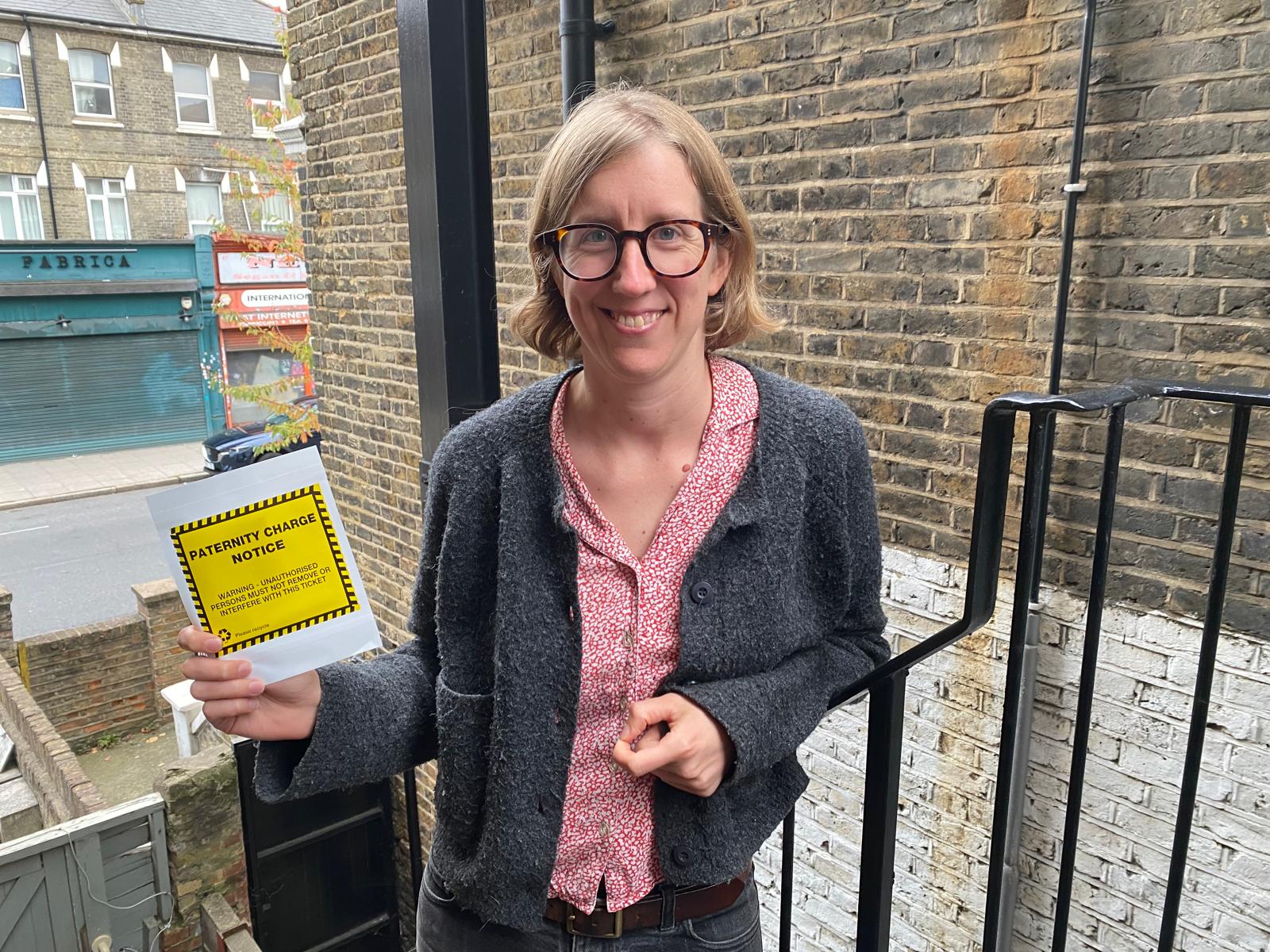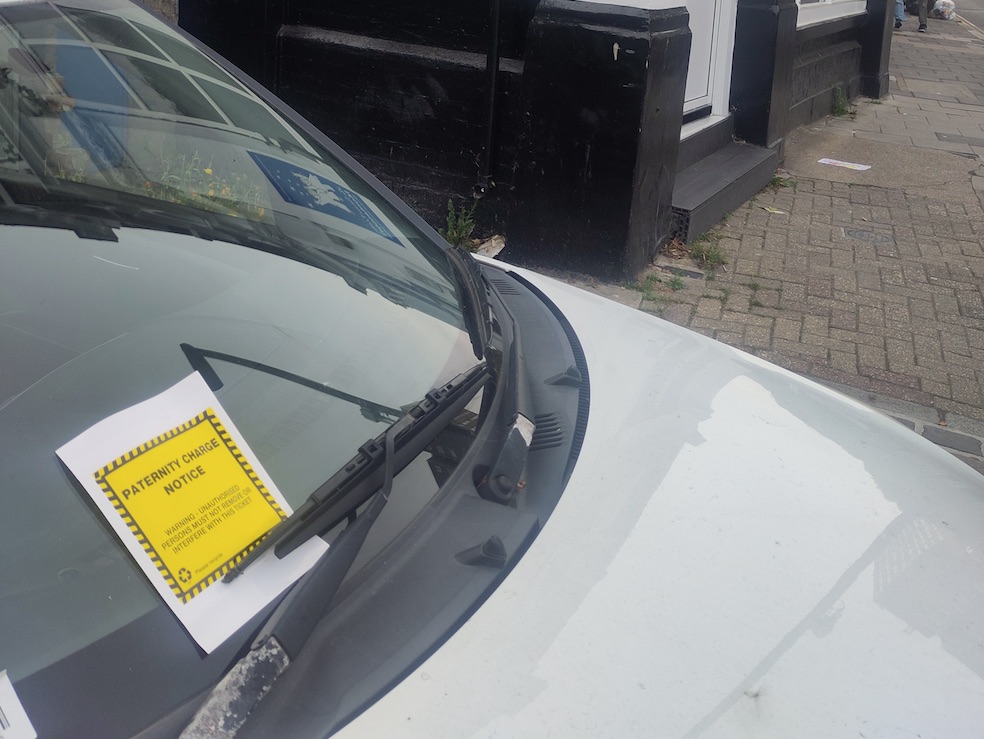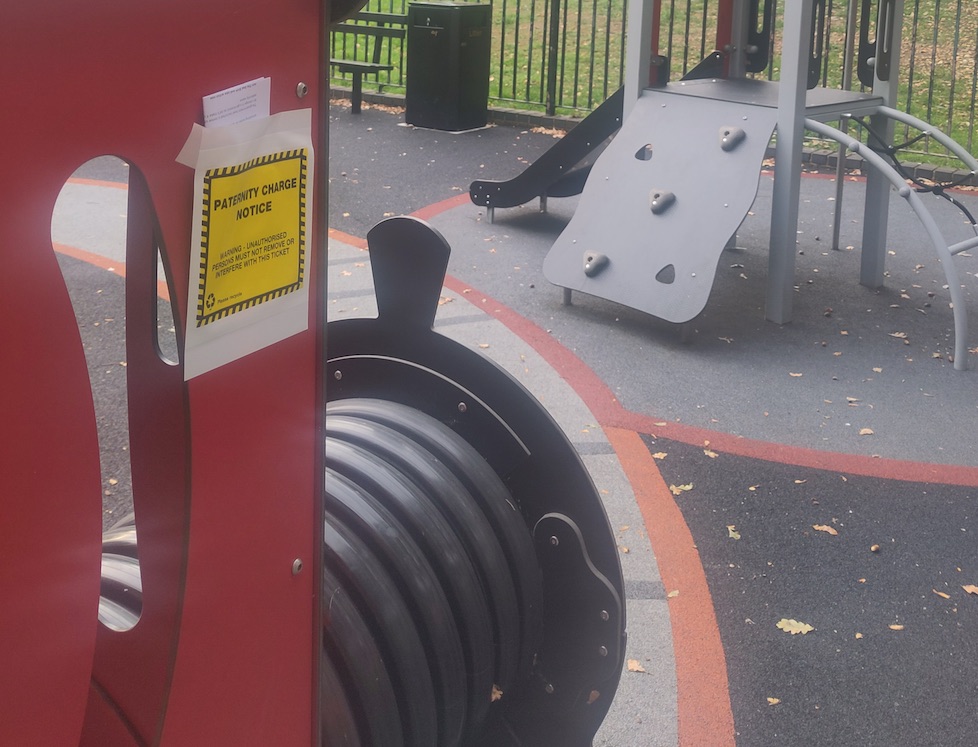Trail of ‘paternity charge notices’ as fathers fight for more paid time at home
A different kind of PCN is left on car windscreens
Friday, 17th October 2025 — By Daisy Clague

Alice Brown joined thousands of supporters around the country putting ‘PCNs’ in her neighbourhood
GUERRILLA paternity leave campaigners left a trail of yellow “parking tickets” in Finsbury Park this week urging local parents to help them win more paid time at home for new dads.
Posted on playground swings, buggies and windscreens in Islington and around the country, the reimagined “Paternity Charge Notices” informed anyone who found them that the UK’s paternity leave system is the worst in Europe – two weeks off, on less than half the minimum wage.
The European average is eight weeks off, at full pay. The stunt was organised by The Dad Shift, a campaign group hoping the government’s ongoing review into parental leave and pay will see paternity leave updated for the first time since it was introduced in 2003.
In Finsbury Park, Alice Brown joined thousands of supporters around the country to put up the “PCNs” in her neighbourhood. It was her first time campaigning, and although it was slightly stressful she decided to take part because improving paternity leave is an “uncontroversial no-brainer”.
Ms Brown said: “If you’ve made the decision to have a baby, why would you not want to spend time with them? I think it could shift so much around equality for men and women, allowing men to embrace being in a caring role.”
Ms Brown and her partner made use of shared parental leave when their daughter was born – a policy introduced by the Conservative government that allows one parent to transfer some maternity leave to the other.

“Having done that, I’m now militant about telling everyone that that’s what they need to do, because I think it makes such a huge impact – you can genuinely share responsibility,” Ms Brown explained.
But it was only viable because they earned a similar amount of money – in cases where one parent earns more, it’s hard to justify the financial hit that would come with them taking time off and only earning the government stipend of around £370 per week.
Ms Brown said: “Typically, men are earning more, so [for women] it’s often like, ‘I have to stay at home because Dad earns more and nursery is really expensive.’ So people don’t have a genuine choice. And if you spend 10, 11 months on maternity leave being the primary caregiver, that’s just going to carry on for the rest of the child’s young life. It perpetuates the fact that women do all of that caring work.”

The Dad Shift co-founder Alex Lloyd Hunter, whose youngest child is nine weeks old, told the Tribune that the PCN stunt is a reminder of the gap between paternity pay and the expense of raising a child, meaning parents effectively face a charge for having children.
“It’s a national embarrassment how far behind paternity leave is compared to our peer countries,” he said, adding that the UK’s “badly designed” maternity leave – which is long, but badly paid – makes for a regressive combination. “It pushes parents who want to do things more equally into these ‘breadwinner’ and ‘homemaker’ roles, where mothers are saddled with all the childcare. They shouldn’t have to make that choice. Our government has a once in a generation opportunity to put this right, and parents will not forgive them if they don’t.”
Many companies have their own parental leave policies, but this is part of what turns paternity leave into a “class issue”, Mr Lloyd Hunter said, with additional implications for men’s mental and physical health as they are pushed back to work despite all the changes of new parenthood. The Dad Shift is campaigning to change the statutory paternity leave allowance, set by the government and available to everyone.
“Two weeks isn’t enough for anyone, but those who are suffering most from the level of pay are those in insecure work, who may not have access to any paternity leave whatsoever,” he said, including self-employed people.
There are other countries we can learn from – in Sweden, each parent gets 90 days, and then an additional 300 days they can share as they see fit, while in Spain, which used to give just two weeks’ paternity leave like the UK, the policy is now 16 weeks at full pay.